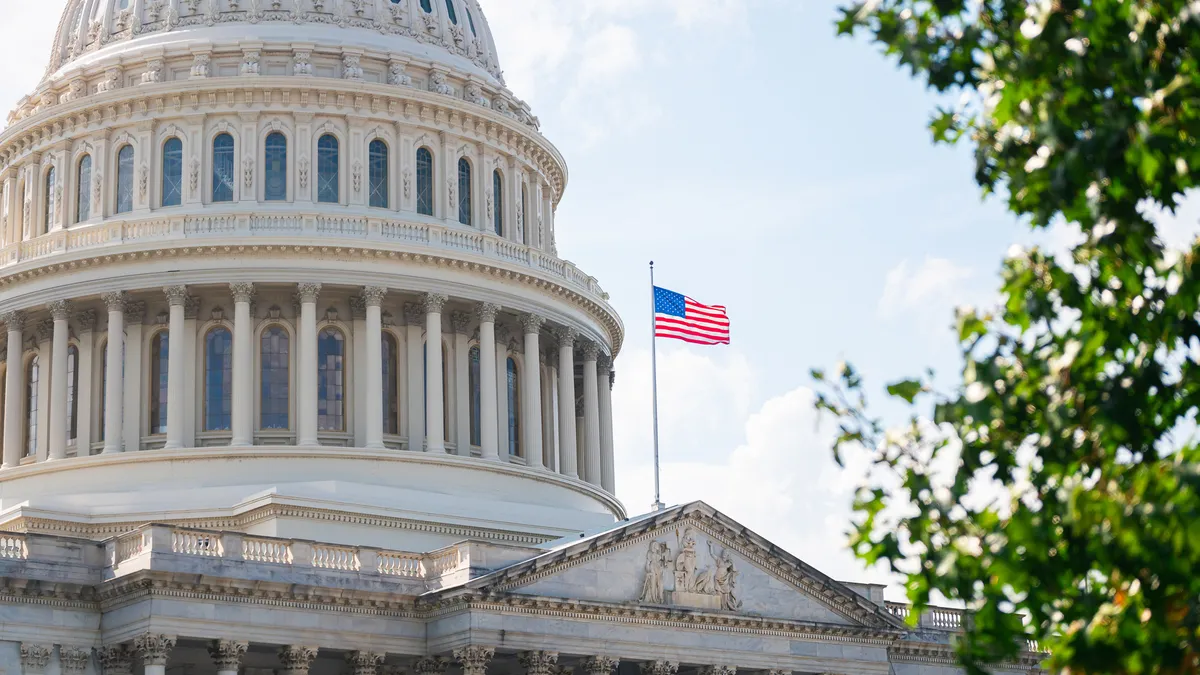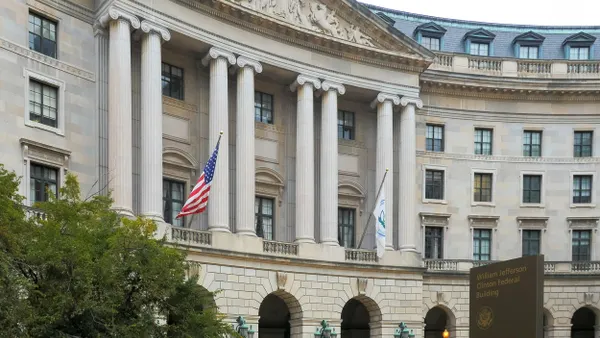A pair of U.S. senators active in recycling policy introduced their latest bill this week, this time focused on reuse.
U.S. Sens. Shelley Moore Capito, R-W.Va., chair of the Environment and Public Works Committee, and Jeff Merkley, D-Ore., introduced the Research for Environmental Uses and Sustainable Economies (REUSE) Act.
The REUSE Act would direct the U.S. EPA to conduct a feasibility study on reuse and refill systems in different sectors. This may include in food service, food and beverage products, consumer cleaning products, personal care products, education institutions, and transportation and shipping of wholesale and retail goods.
A report would be due within two years. This would explore equitably scaling reuse and refill systems in different types of communities, as well as their economic costs and benefits.
This information could ultimately inform local, state and federal efforts, according to the senators.
Capito said in a statement this legislation “will give Congress the information it needs to understand where these systems work best, what challenges remain, and how we can support their growth in a way that benefits both consumers and businesses.”
“For years, we were taught the three Rs — reduce, reuse, and recycle; but too often the reality is plastics are the three Bs — buried, burned, and borne out to sea,” Merkley added. “Our bipartisan effort is a simple tool to improve reuse systems nationwide by better understanding how they can most effectively operate.”
Capito and Merkley have previously championed recycling legislation. They pushed for both the Recycling Infrastructure and Accessibility Act and the Recycling and Composting Accountability Act, each of which passed the Senate in 2024 but didn’t move forward in the House.
This year, Capito is a co-sponsor of the STEWARD Act, legislation introduced in February that combines RIAA and RCAA. RIAA was also reintroduced this year in the House.
Some state legislatures have advanced reuse initiatives through extended producer responsibility policies. According to data compiled by reuse nonprofit Upstream, all seven states with packaging EPR laws include some reuse provisions, whether through including targets, incentives through ecomodulated fees, funding for infrastructure or other aspects.













